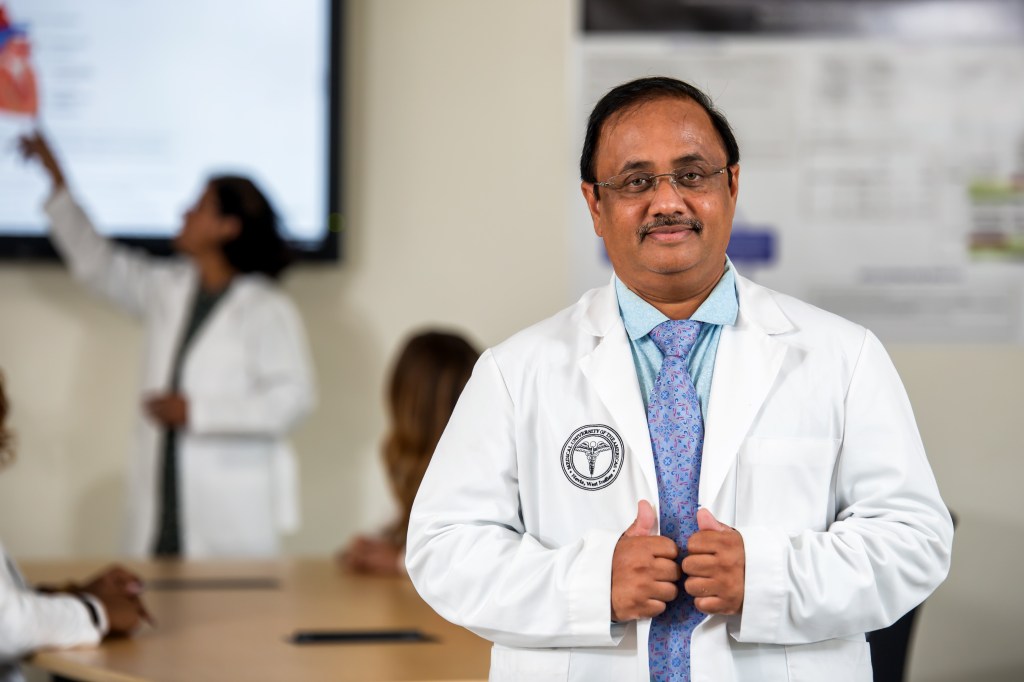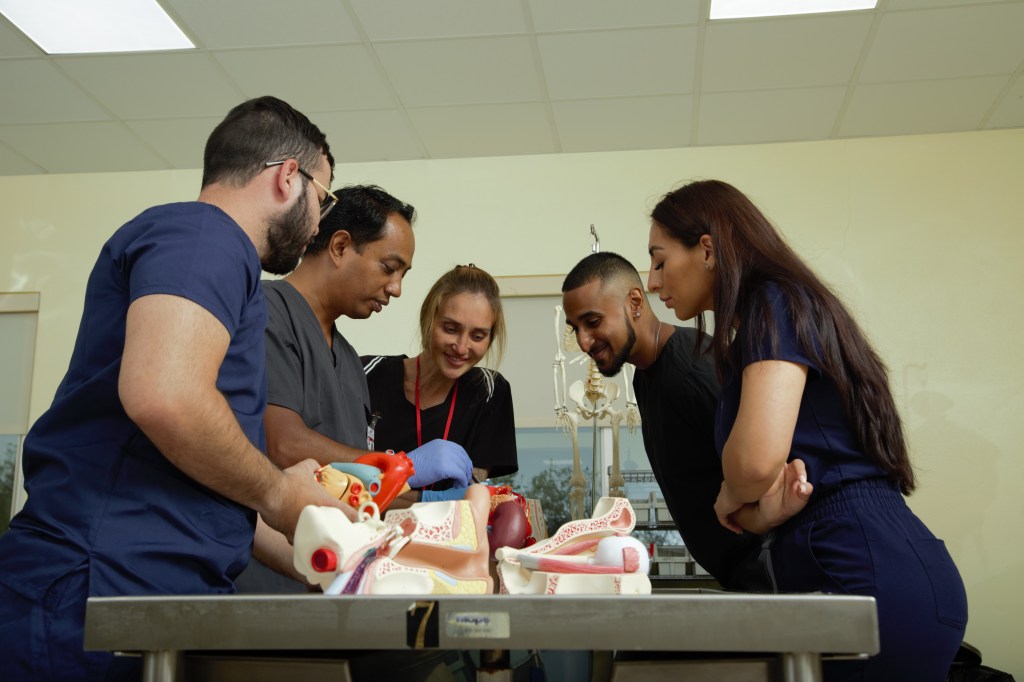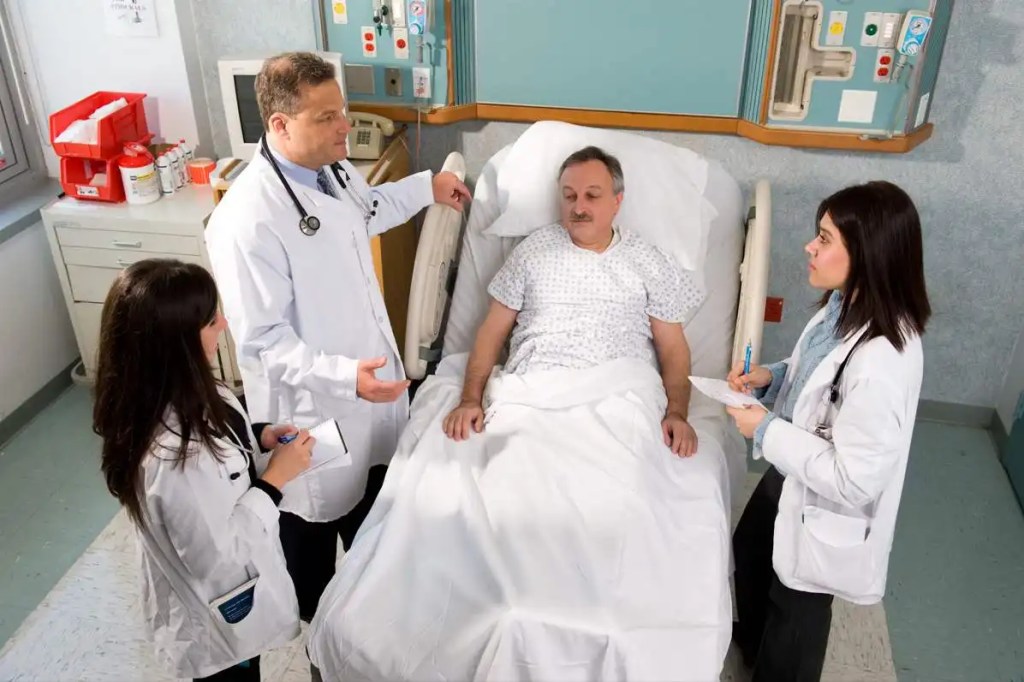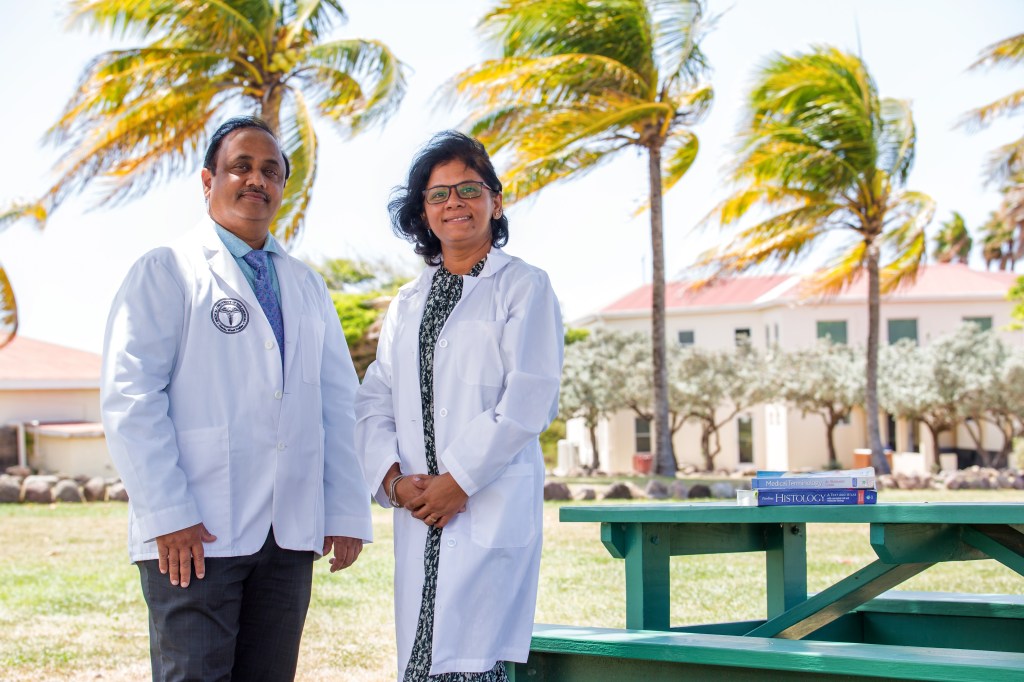Expand Your Knowledge
Students who successfully complete Gateway typically become some of the strongest medical students at MUA.

15-week medical school preparatory program for MUA’s conditionally accepted students, online or on-campus.
The Gateway Medical Program is a 15-week preclinical and clinical sciences program offered online or on-campus to students who have been granted conditional acceptance to Medical University of the Americas (MUA).
Gateway is offered three times per year, beginning in January, May, and September. Upon successful completion of Gateway, students join the next entering MUA medical school class.
Gateway Program graduates may qualify for the full range of academic scholarships offered by MUA’s 4-Year MD Program based on their combined GPA across both the Gateway Program and their undergraduate study or their MCAT score, whichever affords the higher scholarship payout.
Students may attend Gateway part-time, and online students may attend asynchronously.

Students who successfully complete Gateway typically become some of the strongest medical students at MUA.

Receive individualized, expert coaching on study techniques and knowledge retention strategies.

Begin medical school with a built-in support system of friends and study partners.

Gateway students benefit from a 3:1 student-to-faculty ratio, allowing personalized instruction.

100% of Gateway faculty hold either a PhD, MD or both, and have extensive experience teaching medical students.
The Gateway Grant is exclusively available to students who enrolled in the January 2024 and subsequent cohorts of the Gateway Program. Eligible Gateway students will be awarded a one-time grant of $7,000 USD to be applied toward their Gateway tuition fees. While students will benefit from this grant, they will continue to pay the administrative cost of $2,500 USD associated with the course.